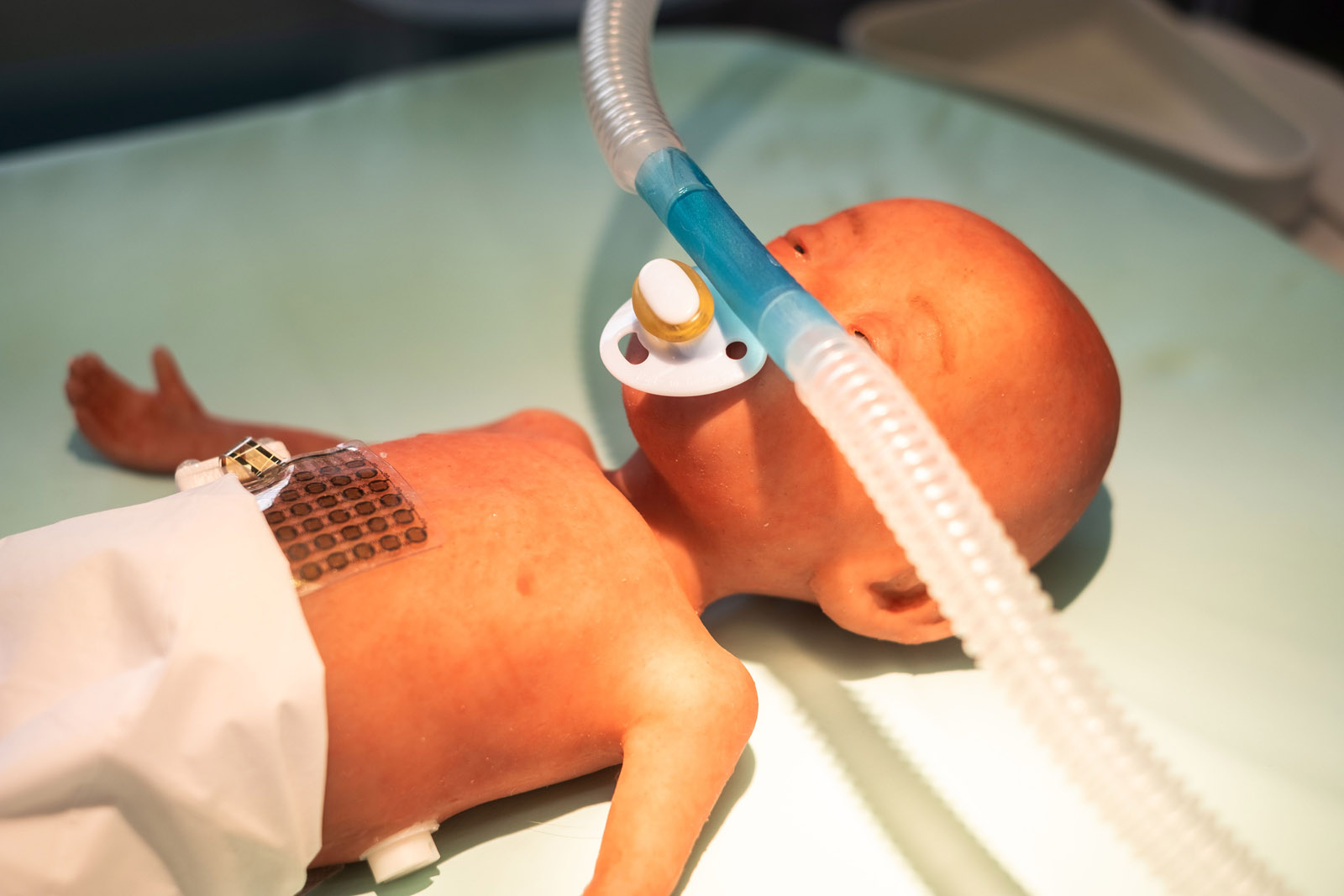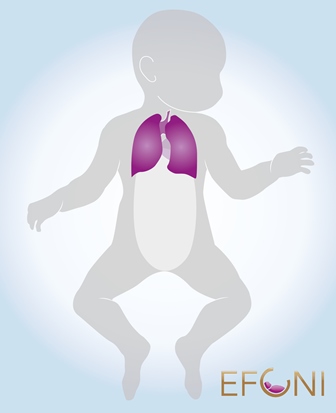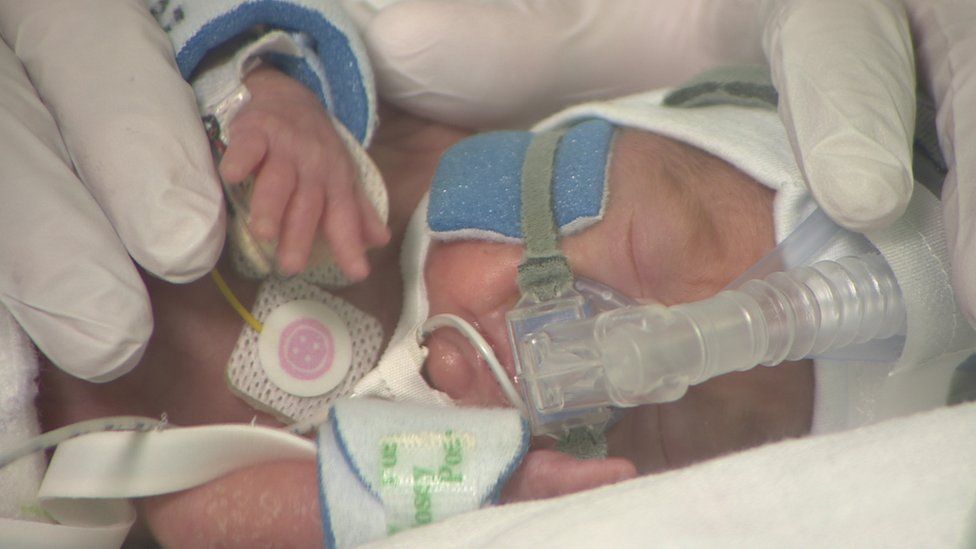surfactant premature babies treatment
Surfactant is necessary for breathing. Full text Full text is available as a scanned copy of the original print version.

Neonatal Respiratory Distress Syndrome Treatment Market Global Industry Analysis And Growth By 2020 Size Share Trends Opportunities Top 5 Key Players And Regional Forecast Up To 2027 Medgadget
Published Jul 29 2021.

. Preterm infants with respiratory distress syndrome RDS requiring surfactant therapy have been traditionally receiving surfactant by intubation surfactant and extubation technique InSurE which comprises of tracheal intubation surfactant administration and extubation. Babies with RDS have detectable circulating immune complexes directed toward surfactant proteins but these do not appear to be more frequent in babies that are treated with. Surfactant treatment for premature babies-a review of clinical trials C J Morley In the late 1950s it wasshownthat respiratory distress syndrome was associated with a defi-.
The current treatment for this condition is the introduction of animal surfactant through a tube in the babys windpipe. This method is often successful but its expensive and. What causes RDS in premature babies.
Surfactant replacement therapy for premature babies acts to keep the. For defining the role of pulmonary surfactant and developing a life-saving artificial surfactant used in. Pulmonary surfactant is a substance that prevents the air sacs of the lungs from collapsing by reducing surface tension.
Surfactant treatment in preterm infants and term newborns with acute respiratory distress syndrome ARDS-like severe respiratory failure has become part of an individualized. He said that using pig lung surfactant saved many premature babies. Get a printable copy PDF file of the complete article 243K or click on a page image below to browse page by.
Surfactant Beractant used in trials administration in ventilated infants with Meconium Aspiration. However more recently noninvasive methods like least invasive surfactant therapy. This was previously known as hyaline membrane disease HMD.
Treatment with exogenous surfactant has saved the lives of thousands of premature babies in the past few decades The therapeutic efficiency of a given surfactant preparation correlates. Breakthrough Lung Treatment Saving Premature Babies Bbc News. Sometimes it is absent in immature lungs and respiratory distress.
A baby develops RDS when the. The AeroFact system was more effective than previous treatments that attempted to deliver surfactants through aerosol format. The Cochrane review comparing early surfactant treatment of infants with signs of RDS to later selective treatment shows a reduced risk of airleak neonatal mortality and chronic lung.
Pulmonary hemorrhage sepsis pneumonia meconium aspiration and post surfactant slump. Babies born without enough surfactant are said to have respiratory distress syndrome or RDS. Pulmonary surfactant is a vital substance that coats the tiny air sacs of the lungs and is required for normal breathing.
The lungs of premature infants however have not developed enough alveoli or Type II alveolar cells to produce the amount of surfactant needed. Surfactant treatment for premature babies-a review of clinical trials C J Morley In the late 1950s it wasshownthat respiratory distress syndrome was associated with a defi-ciency ofpulmonary. The Japanese surfactant modified by Abbott laboratories is called Survanta79 It is a frozen aqueous suspension of 25 mgml and contains approximately 88-90 phospholipids of which.
Surfactant is indicated for the treatment of RDS in premature infants. Surfactant treatment in preterm infants and term newborns with acute respiratory distress syndrome ARDS-like severe respiratory failure has become part of an individualized treatment. Etiology of surfactant inactivation or dysfunction.
A synthetic surfactant lucinactant that contains a 21-amino acid peptide that mimics SP-B activity has recently been approved for the prevention and treatment of RDS in. Surfactant treatments together with antenatal corticosteroid treatments are uniformly viewed as the most important pharmacological interventions to improve outcomes. The most common lung problem in a premature baby is respiratory distress syndrome RDS.
A treatment for lungs was developed in Sweden over 30 years ago and it was extracted from pigs. Surfactant replacement therapy for RDS -.

Surfactant Replacement In Neonates By Brian Walsh For Openpediatrics Youtube

Exosurf Neonatal Surfactant Respiratory Treatment For Premature Babies Science Museum Group Collection

Treatment Of Breathing Problems In Premature Babies

Proposed Algorithm For The Treatment Of Rds Using Noninvasive Download Scientific Diagram

Sensors Provide Gentle Lung Treatment For Preemies Research Development World

Single Dose Surfactant Early Rescue Therapy In Respiratory Distress Syndrome Experience And Outcome At A Tertiary Care Centre Semantic Scholar

Surfactant Replacement Therapy A Milestone In Neonatology Efcni

Comparison Of Minimally Invasive Surfactant Therapy With Intubation Surfactant Administration And Extubation For Treating Preterm Infants With Respiratory Distress Syndrome A Randomized Clinical Trial

Pdf Radiological Assessment Of Post Surfactant Changes In Respiratory Distress Syndrome Semantic Scholar

Minimally Invasive Surfactant Administration For The Treatment Of Ne

Nicu Procedures Surfactant Administration In A Preterm Infant Youtube

Flowchart Of The Administration Of Surfactant Download Scientific Diagram

Breakthrough Lung Treatment Saving Premature Babies Bbc News

Breathing Problems And Premature Babies

Nicu Procedures Surfactant Administration In A Preterm Infant Youtube

Surfactant Administration Nicu Youtube

Postnatal Steroids In Premature Babies Where Are We Now Paediatricfoam
Pulmonary Surfactant Maternal And Neonatal Directed Assessment Of Technology
